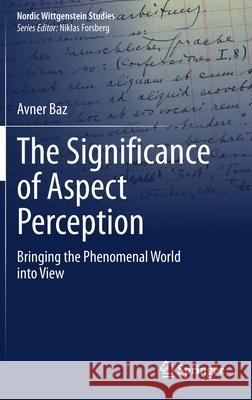The Significance of Aspect Perception: Bringing the Phenomenal World Into View » książka
topmenu
The Significance of Aspect Perception: Bringing the Phenomenal World Into View
ISBN-13: 9783030386245 / Angielski / Twarda / 2020 / 201 str.
The Significance of Aspect Perception: Bringing the Phenomenal World Into View
ISBN-13: 9783030386245 / Angielski / Twarda / 2020 / 201 str.
cena 362,27
(netto: 345,02 VAT: 5%)
Najniższa cena z 30 dni: 346,96
(netto: 345,02 VAT: 5%)
Najniższa cena z 30 dni: 346,96
Termin realizacji zamówienia:
ok. 22 dni roboczych.
ok. 22 dni roboczych.
Darmowa dostawa!
Kategorie:
Kategorie BISAC:
Wydawca:
Springer
Seria wydawnicza:
Język:
Angielski
ISBN-13:
9783030386245
Rok wydania:
2020
Wydanie:
2020
Numer serii:
000801736
Ilość stron:
201
Waga:
0.47 kg
Wymiary:
23.39 x 15.6 x 1.27
Oprawa:
Twarda
Wolumenów:
01
Dodatkowe informacje:
Wydanie ilustrowane











